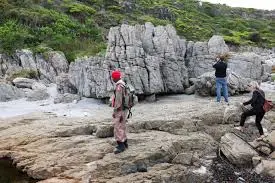
GENEVA, March 22, 2024 (BSS/AFP) - A mass grave containing "at least 65
migrants' bodies" was discovered in southwest Libya this week, the UN migration
agency said Friday.
A spokesman for the International Organization for Migration told AFP the
mass grave was unocovered by Libyan security forces.
The IOM said it was "profoundly shocked and alarmed". It added that the
circumstances of the deaths "remains unknown".
"But it is believed that they died in the process of being smuggled through
the desert," the agency said in a statement.
More than a decade of violent instability since the 2011 overthrow and
killing of dictator Moamer Kadhafi in a NATO-backed uprising helped turn Libya
into a fertile ground for human traffickers, who have long been accused of
abuses against migrants.
The IOM said it appreciated that Libyan authorities had launched an
investigation into the deaths. It called on them to "ensure a dignified
recovery, identification and transfer of the remains of the deceased migrants",
and notify and assist their families.
"Each report of a missing migrant or a loss of life represents a grieving
family searching for answers about their loved ones or acknowledging the
tragedy of the loss," a spokesperson said in the statement.
"The cost of inadequate action is evident in the increasing human deaths
and the disturbing conditions migrants find themselves in."
The IOM said the deaths showed "the urgent need to address the challenges
of irregular migration including through a coordinated response to the
smuggling of migrants and trafficking in persons".
"Without regular pathways that provide opportunities for legal migration,
such tragedies will continue to be a feature along this route," it said.
According to the IOM's Missing Migrants Project, at least 3,129 deaths and
disappearances were recorded in 2023 along the Mediterranean route to Europe,
making it the world's deadliest migratory route.
The IOM called on authorities in countries along the route to "enhance
regional cooperation to ensure the safety and protection of migrants,
regardless of their status, and across all stages of their journeys".